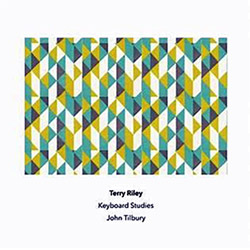
There is uncertainty of when pianist John Tilbury recorded these three solo keyboard works by his associate and friend, legendary minimalist composer Terry Riley, performing "Keyboard Study #1" and #2, along with "Dorian Reeds" using piano, electric organ, harpsichord & celesta, captured with excellent quality in superb performances from Tilbury at the height of his powers.
In Stock
Quantity in Basket: None
Log In to use our Wish List
Shipping Weight: 3.00 units
Sample The Album:
John Tilbury-piano, electric organ, harpsichord, celesta
Terry Riley-composer
Click an artist name above to see in-stock items for that artist.
Label: Another Timbre
Catalog ID: at193
Squidco Product Code: 32032
Format: CD
Condition: New
Released: 2022
Country: UK
Packaging: Cardboard Gatefold
Recorded in Hamburg in the late 1970's, or early 80's.
"Terry Riley and John Tilbury are both giants of experimental music. They were friends from the late 1960's onwards, and John has performed Terry's Keyboard Studies several times in concert, as well as recording them for BBC Radio in 1971.However, the recordings on the CD are not the BBC recordings. In fact John can't remember exactly when the recordings were made, though he thinks they took place in Hamburg, Germany, probably about 30 years ago. He can't recall the details, except that everything was recorded in one day - which was quite a feat given the amount of over-dubbing in Keyboard Study No.2.What is clear is that John was at the height of his considerable powers at the time the recordings were made.Aside from the legendary 'In C', the Keyboard Studies are probably the most frequently performed of Terry Riley's works. Written almost 60 years ago, virtually at the same time as 'In C', the Keyboard Studies are like short sketches for the performer to develop. At the time Terry was developing a semi-improvisational practice as a young keyboard player in San Francisco, and it is his music from this era which shot him to prominence in the late 1960's. He has continued to work as both a performer and composer, and has had a particularly close relationship with the Kronos Quartet, writing many works for them, and for his son, the guitarist Gyan Riley."-Another Timbre
Artist Biographies
• Show Bio for John Tilbury "John Tilbury (born 1 February 1936) is a British pianist. He is considered one of the foremost interpreters of Morton Feldman's music, and since 1980 has been a member of the free improvisation group AMM. Tilbury studied piano at the Royal College of Music with Arthur Alexander and James Gibb and also with Zbigniew Drzewiecki in Warsaw. 1968 he was the winner of the Gaudeamus competition in the Netherlands. During the 1960s, Tilbury was closely associated with the composer Cornelius Cardew, whose music he has interpreted and recorded and a member of the Scratch Orchestra. His biography of Cardew, "Cornelius Cardew - A life unfinished" was published in 2008. Tilbury has also recorded the works of Howard Skempton and John White, among many others, and has also performed adaptations of the radio plays of Samuel Beckett. With guitarist AMM bandmate Keith Rowe's electroacoustic ensemble M.I.M.E.O., Tilbury recorded The Hands of Caravaggio, inspired by the painter's The Taking of Christ {1602). In this live performance, twelve of the members of M.I.M.E.O. were positioned around the piano in a deliberate echo of Christ's Last Supper. The thirteenth M.I.M.E.O. member (Cor Fuhler) is credited with "inside piano" as he interacted and interfered with Tilbury's playing by manipulating and damping the instrument's strings, essentially doing piano preparation in real time. Critic Brian Olewnick describes the album as "A staggering achievement, one is tempted to call The Hands of Caravaggio the first great piano concerto of the 21st century." Another notable recent recording of Tilbury's was Duos for Doris (like The Hands of Caravaggio also on Erstwhile Records), a collaboration with Keith Rowe. It is widely considered a landmark recording in the genre of electroacoustic improvisation (or "EAI"). In 2013 he collaborated with artist Armando Lulaj in FIEND performance at the National Theatre of Tirana (Albania)." ^ Hide Bio for John Tilbury • Show Bio for Terry Riley "California Composer Terry Riley launched what is now known as the Minimalist movement with his revolutionary classic IN C in 1964. This seminal work Provided a new concept in musical form based on interlocking repetitive patterns. It's impact was to change the course of 20th Century music and it's influence has been heard in the works of prominent composers such as Steve Reich, Philip Glass and John Adams and in the music of Rock Groups such as The Who, The Soft Machine, Tangerine Dream, Curved Air and many others. Terry's hypnotic, multi-layered, polymetric, brightly orchestrated eastern flavored improvisations and compositions set the stage for the prevailing interest in a new tonality. While working on a masters degree at UC Berkeley in 1960, he met La Monte Young, whose radical approach to time made a big impact and the two made a life long association. During this time Riley and Young worked out many of their seminal ideas while working with influential dancer Anna Halprin. During a sojourn to Europe 1962-64 he collaborated with members of the Fluxus group, playwright Ken Dewey and trumpeter Chet Baker and was involved in street theater and happenings. In 1965 he move to New York and joined La Monte Young's Theater of Eternal Music. 1967 was the year of his first all night concert at the Philadelphia College of Art and he began a collaboration with visual artist Robert Benson resulting in more all night concerts. Recordings of In C, A Rainbow in Curved Air, Poppy Nogood and the Phantom Band and the Church of Anthrax were all issued by CBS Masterworks in 1968-69. In 1970, Terry became a disciple of the revered North Indian Raga Vocalist, Pandit Pran Nath and made the first of his numerous trips to India to study with the Master. He appeared frequently in concert with the legendary singer as tampura, tabla and vocal accompanist over the next 26 years until Pran Naths passing in 1996. He has co-directed along with Sufi Murshid, Shabda Kahn of the Chisti Sabri India music study tours 1993-2000. Terry regularly appears in concerts of Indian Classical Music and conducts raga singing seminars. While teaching at Mills College in Oakland in the 1970's he met David Harrington, founder and leader of the Kronos Quartet and began the long association that has so far produced 13 string quartets, a quintet, Crows Rosary and a concerto for string quartet, The Sands (1990), which was the Salzburg Festival's first new music commission and SUN RINGS (2003), the 2 hour multi media piece for choir, visuals and Space sounds, commissioned by NASA. The Cusp of Magic (2004) another quintet for Kronos features Wu Man, pipa, and was released on Nonesuch records in 2007. Cadenza on the Night Plain was selected by both Time and Newsweek as one of the 10 best Classical albums of the year. The epic 5 quartet cycle, Salome Dances for Peace was selected as the #1 Classical album album of the year by USA Today and was nominated for a Grammy. The orchestral piece Jade Palace was commissioned by Carnegie Hall for the Centennial celebration 1990/91. It was premiered there by Leonard Slatkin and the Saint Louis Symphony. June Buddha's, for Chorus and Orchestra, based on Jack Kerouac's Mexico City Blues was commissioned by the Koussevitsky foundation in 1991." ^ Hide Bio for Terry Riley
11/29/2024
Have a better biography or biography source? Please Contact Us so that we can update this biography.
11/29/2024
Have a better biography or biography source? Please Contact Us so that we can update this biography.
Track Listing:
1. Keyboard Study No. 1 (1964) 17:50
2. Keyboard Study No. 2 (1965) 30:57
3. Dorian Reeds (1964/5) 23:50
Compositional Forms
Avant-Garde
Piano & Keyboards
Solo Artist Recordings
Ambient & Minimal Music
Staff Picks & Recommended Items
New in Compositional Music
Recent Releases and Best Sellers
Top Sellers for 2022 by Customer Sales
Search for other titles on the label:
Another Timbre.


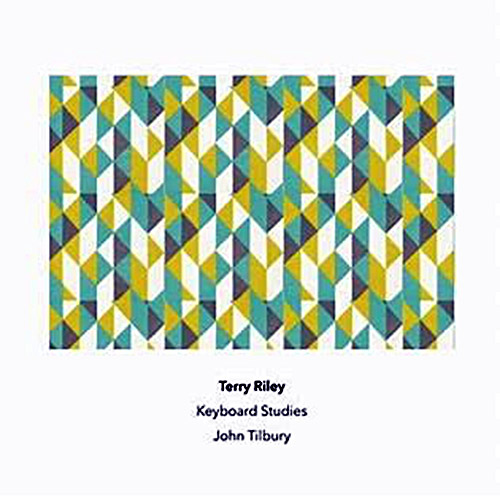


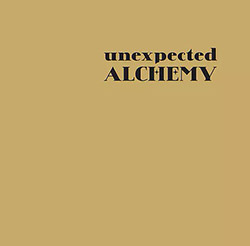


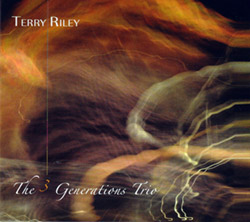
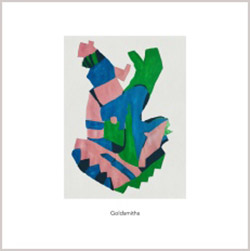


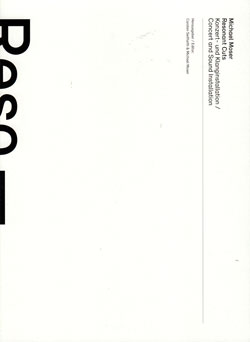
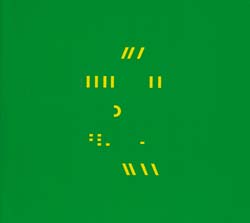
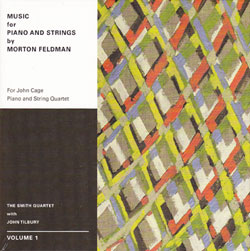
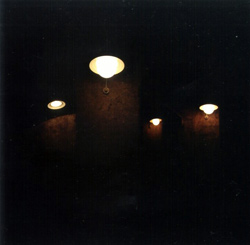
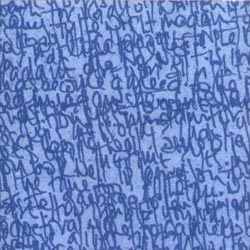
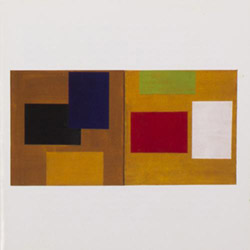

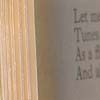

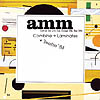
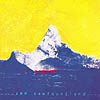


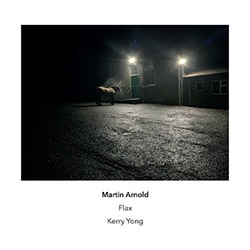
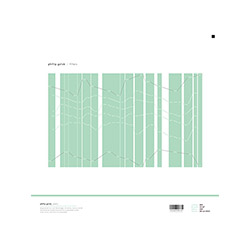
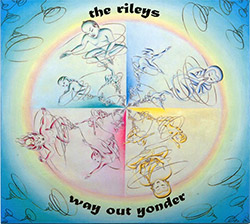
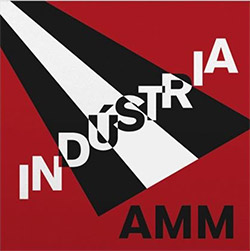




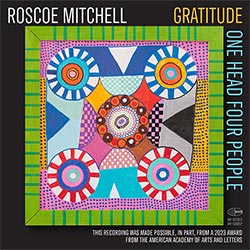
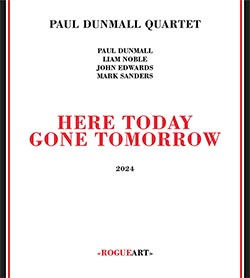
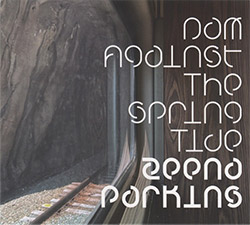
![Weston, Matt: Communism Has Appeared On The Scene [VINYL 2 LPs]](https://www.teuthida.com/productImages/misc4/35546.jpg)
![Coleman, Steve & Five Elements: PolyTropos / Of Many Turns [2 CDs]](https://www.teuthida.com/productImages/misc4/35476.jpg)
![Sorey, Tyshawn (w/ Diehl / Ragahavan): The Susceptible Now [DOUBLE VINYL]](https://www.teuthida.com/productImages/misc4/35477.jpg)


![John Coltrane Quartet (Coltrane / Tyner / Garrison / Jones): Impressions From Graz 1962, Revisited [2 CDs]](https://www.teuthida.com/productImages/misc4/35495.jpg)

![Guy, Barry / Ken Vandermark: Occasional Poems [2 CDs]](https://www.teuthida.com/productImages/misc4/34849.jpg)
![Novoa / Carter / Mela Trio: Vol.1 [VINYL]](https://www.teuthida.com/productImages/misc4/35236.jpg)


![Elephant9 : Mythical River [VINYL]](https://www.teuthida.com/productImages/misc4/34624.jpg)
![Evans, Peter (Evans / Eldh / Black): Extra [VINYL]](https://www.teuthida.com/productImages/misc4/35279.jpg)

![McPhee, Joe: Straight Up, Without Wings [BOOK]](https://www.teuthida.com/productImages/misc4/35454.jpg)
![Jeck, Philip: rpm [2 CDs]](https://www.teuthida.com/productImages/misc4/35455.jpg)









![Barker / Parker / Irabagon: Bakunawa [VINYL]](https://www.teuthida.com/productImages/misc4/35533.jpg)




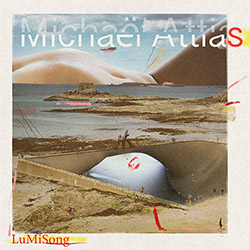
![Blaser, Samuel / Marc Ducret / Peter Bruun: Dark Was The Night, Cold Was The Ground [VINYL 10-inch]](https://www.teuthida.com/productImages/misc4/35492.jpg)






![Warren, Kenny (Warren / Hoffman / Ellman): Sweet World [VINYL]](https://www.teuthida.com/productImages/misc4/35451.jpg)




![Blake, Ran / Dave Knife Fabris: Live Amsterdam 2006, First Visit [CD + POSTCARDS]](https://www.teuthida.com/productImages/misc4/35275.jpg)




![DNS: Taking Big Bites Of The Khandas Three Cafes Deep [2 CDs]](https://www.teuthida.com/productImages/misc4/35334.jpg)




![Cleaver, Gerald: The Process [VINYL]](https://www.teuthida.com/productImages/misc4/34966.jpg)




![Alva Noto: HYbr:ID II [VINYL 2 LPs]](https://www.teuthida.com/productImages/misc4/35201.jpg)

![Baron, Derek / Luke Martin: Distinct and Concealed [CASSETTE + DOWNLOAD]](https://www.teuthida.com/productImages/misc4/35079.jpg)

![Lyle, Erica Dawn : Colonial Motels [CASSETTE + DOWNLOAD]](https://www.teuthida.com/productImages/misc4/35080.jpg)









![Sanna, Claudio: Compositori Sardi Contemporanei II [2 CDs]](https://www.teuthida.com/productImages/misc4/35317.jpg)







![Zurria, Manuel: Fame di Vento [3 CDs]](https://www.teuthida.com/productImages/misc4/35167.jpg)

![Granberg, Magnus / Nattens Inbrott / Skogen: Holde Traume, Kehret Wieder! [2 CDs]](https://www.teuthida.com/productImages/misc4/35038.jpg)
![Frey, Jurg: Outermost Melodie [2 CDs]](https://www.teuthida.com/productImages/misc4/35039.jpg)
![Pavone, Jessica: Reverse Bloom [VINYL]](https://www.teuthida.com/productImages/misc4/34895.jpg)




![Modney (Modney / Wooley / Gentile / Roberts / Pluta / Symthe / ...): Ascending Primes [2 CDs]](https://www.teuthida.com/productImages/misc4/34852.jpg)







![Elephant9 with Terje Rypdal: Catching Fire [VINYL 2 LPs]](https://www.teuthida.com/productImages/misc4/35355.jpg)
![Deerlady (Obomsawin, Mali / Magdalena Abrego): Greatest Hits [VINYL]](https://www.teuthida.com/productImages/misc4/34876.jpg)




![Haino, Keiji: Black Blues [2 CDs]](https://www.teuthida.com/productImages/misc4/35109.jpg)



![Surplus 1980: Illusion of Consistency [CD]](https://www.teuthida.com/productImages/misc4/35069.jpg)
![Staiano, Moe: Away Towards the Light [VINYL + DOWNLOAD]](https://www.teuthida.com/productImages/misc4/35037.jpg)



![Caveira (Gomes / Sousa / Abras / Ferrandini): Ficar Vivo [VINYL]](https://www.teuthida.com/productImages/misc4/34643.jpg)
![Gregg, J. J. / David Van Auken: Lunar Prairie [CD w/ DOWNLOAD]](https://www.teuthida.com/productImages/misc4/34611.jpg)

![Coultrain: Mundus [VINYL]](https://www.teuthida.com/productImages/misc4/32439.jpg)
![Mattin: Songbook #6 [VINYL]](https://www.teuthida.com/productImages/misc4/27317.jpg)
![Punkappella: Wake Up [7-inch VINYL]](https://www.teuthida.com/productImages/misc4/17519.jpg)
![Residents, The: WARNING: UNiNC.: Live And Experimental Recordings 1971-1972 [VINYL 2 LPs]](https://www.teuthida.com/productImages/misc4/31521.jpg)
![Coultrain: Phantasmagoria [VINYL]](https://www.teuthida.com/productImages/misc4/30142.jpg)
![Lennon, Sean Ono: Asterisms [VINYL]](https://www.teuthida.com/productImages/misc4/34517.jpg)

![Coley, Byron: Dating Tips for Touring Bands [VINYL]](https://www.teuthida.com/productImages/misc4/17906.jpg)

![Lost Kisses: My Life is Sad & Funny [DVD]](https://www.teuthida.com/productImages/misc4/lostKissesDVD.jpg)